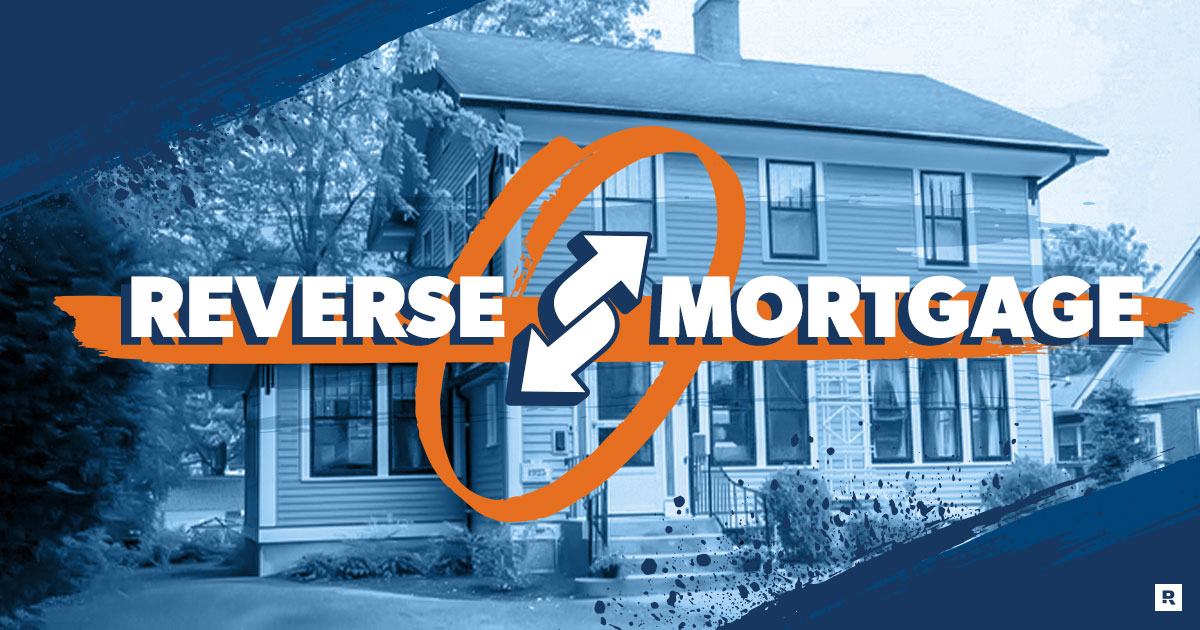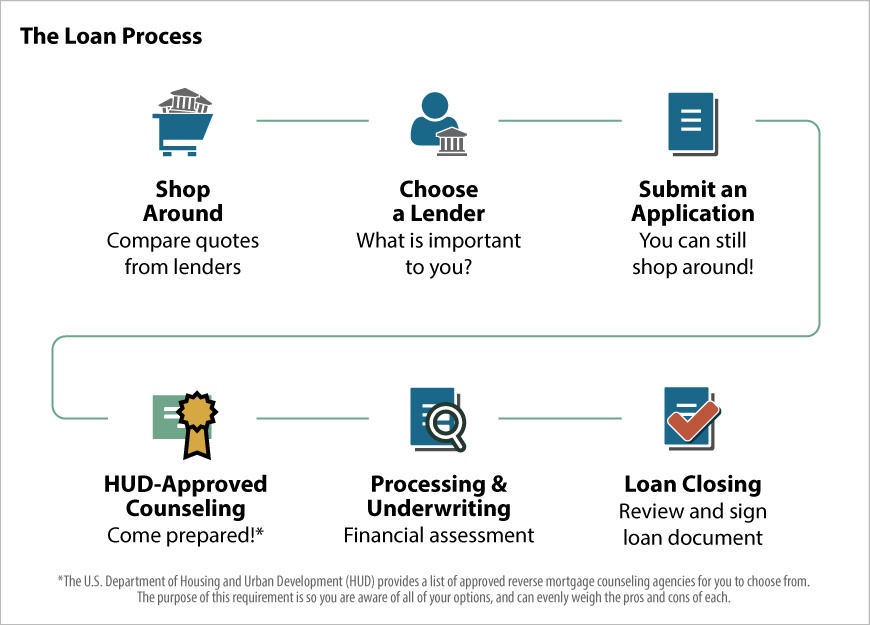What You Need to Know Before You Purchase Reverse Mortgage
What You Need to Know Before You Purchase Reverse Mortgage
Blog Article
Unlock Financial Liberty: Your Guide to Getting a Reverse Home Mortgage
Understanding the details of reverse mortgages is important for property owners aged 62 and older looking for monetary liberty. This special monetary instrument allows elders to leverage their home equity, transforming it into accessible cash for various demands, from health care to lifestyle improvements. Navigating the eligibility costs, benefits, and standards can be complicated. As you consider this choice, it is essential to comprehend not only exactly how it functions but additionally the effects it may carry your financial future. What are the essential elements you should consider prior to making such an impactful decision?
What Is a Reverse Home Loan?

The fundamental allure of a reverse home mortgage depends on its prospective to enhance financial flexibility during retirement. Property owners can utilize the funds for numerous objectives, consisting of medical costs, home improvements, or daily living prices, thus supplying a safety net throughout a critical point of life.
It is vital to understand that while a reverse mortgage enables for boosted cash money circulation, it also decreases the equity in the home in time. As rate of interest accumulates on the superior car loan balance, it is essential for potential customers to meticulously consider their long-term economic plans. Consulting with a reverse mortgage or an economic expert expert can supply beneficial understandings into whether this choice straightens with a person's economic goals and circumstances.
Qualification Requirements
Recognizing the qualification requirements for a reverse home mortgage is important for home owners considering this economic alternative. To qualify, applicants need to be at the very least 62 years of ages, as this age criterion allows senior citizens to access home equity without month-to-month home mortgage settlements. In addition, the homeowner must inhabit the home as their main house, which can include single-family homes, specific condominiums, and manufactured homes meeting particular guidelines.
Equity in the home is an additional essential demand; property owners usually need to have a significant quantity of equity, which can be determined with an assessment. The amount of equity offered will directly affect the reverse mortgage quantity. Applicants have to demonstrate the capacity to preserve the home, including covering residential property taxes, house owners insurance policy, and maintenance prices, ensuring the residential property stays in good condition.
In addition, prospective customers need to go through a monetary analysis to assess their revenue, credit rating, and overall financial scenario. This assessment helps lending institutions figure out the candidate's capacity to fulfill ongoing commitments associated with the residential property. Meeting these demands is important for protecting a reverse home loan and making sure a smooth economic change.
Advantages of Reverse Home Mortgages
Countless advantages make reverse mortgages an attractive choice for elders wanting to improve their economic adaptability. purchase reverse mortgage. One of the main benefits is the capacity to convert home equity into cash without the requirement for monthly home mortgage repayments. This attribute enables senior citizens to access funds for various demands, such as medical expenses, home enhancements, or daily living costs, consequently easing monetary tension
Furthermore, reverse mortgages provide a safeguard; senior citizens can remain to stay in their homes for as long as they satisfy the finance demands, fostering security during retirement. The earnings like it from a reverse home mortgage can also be made use of to delay Social Protection advantages, possibly causing greater payments later.
Furthermore, reverse mortgages are non-recourse loans, indicating that debtors will certainly never ever owe even more than the home's value at the time of sale, protecting them and their successors from economic responsibility. The funds gotten from a reverse home loan are usually tax-free, including an additional layer of monetary relief. Overall, these benefits setting reverse home mortgages as a practical remedy for senior citizens seeking to boost their economic circumstance while preserving their valued home setting.

Expenses and Charges Involved
When considering a reverse home loan, it's important to be mindful of the different expenses and charges that can impact the overall monetary photo. Understanding these expenses is vital for making a notified choice about whether this monetary product is ideal for you.
One of the primary prices associated Full Article with a reverse home loan is the source charge, which can differ by lender yet normally varies from 0.5% to 2% of the home's appraised value. Furthermore, property owners need to anticipate closing prices, which may consist of title insurance coverage, assessment costs, and debt record fees, generally amounting to several thousand dollars.
An additional significant cost is mortgage insurance costs (MIP), which protect the loan provider against losses. This charge is normally 2% of the home's value at closing, with an ongoing annual costs of 0.5% of the staying loan balance.
Finally, it is very important to consider ongoing expenses, such as real estate tax, house owner's insurance policy, and maintenance, as the borrower stays in charge of these costs. By very carefully examining these charges and expenses, homeowners can much better analyze the monetary effects of going after a reverse home mortgage.
Steps to Get Going
Beginning with a reverse home loan includes several crucial steps that can help streamline the procedure and ensure you make notified choices. Initially, evaluate your financial situation and figure out if a reverse home mortgage straightens with your lasting try this site goals. This includes examining your home equity, existing debts, and the requirement for added income.
Next, study numerous lenders and their offerings. Try to find trustworthy institutions with favorable evaluations, clear fee frameworks, and competitive rates of interest. It's important to compare conditions and terms to discover the ideal suitable for your demands.
After picking a lending institution, you'll need to complete a comprehensive application procedure, which typically requires documents of earnings, possessions, and property details. Take part in a counseling session with a HUD-approved counselor, that will supply insights into the effects and responsibilities of a reverse home mortgage.
Verdict
Finally, reverse home loans present a feasible alternative for seniors looking for to improve their economic security during retirement. By converting home equity right into obtainable funds, homeowners aged 62 and older can resolve numerous monetary demands without the pressure of monthly payments. Comprehending the ins and outs of eligibility, advantages, and connected costs is necessary for making notified choices. Mindful consideration and preparation can bring about better quality of life, guaranteeing that retirement years are both safe and fulfilling.
Comprehending the intricacies of reverse home loans is important for house owners aged 62 and older looking for financial freedom.A reverse home mortgage is an economic product made mostly for house owners aged 62 and older, enabling them to convert a portion of their home equity into cash money - purchase reverse mortgage. Consulting with an economic consultant or a reverse mortgage expert can supply valuable understandings into whether this alternative straightens with a person's monetary goals and situations
Additionally, reverse home mortgages are non-recourse financings, meaning that consumers will certainly never ever owe more than the home's value at the time of sale, protecting them and their successors from economic obligation. Overall, these advantages setting reverse mortgages as a useful option for senior citizens looking for to boost their financial circumstance while preserving their valued home setting.
Report this page